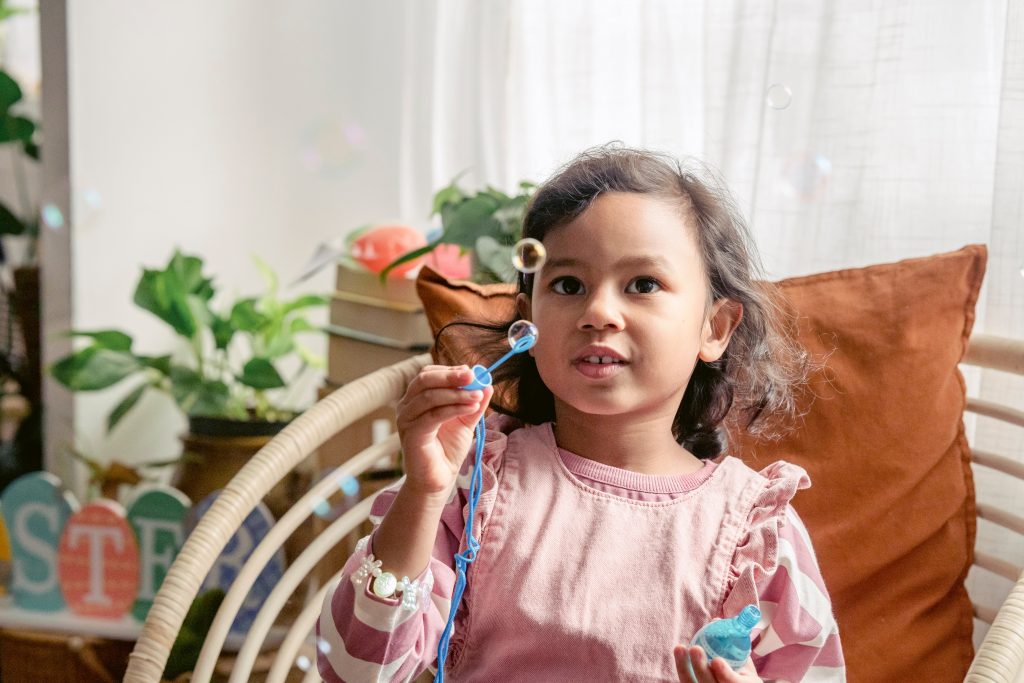
One of the key goals in early intervention is to help toddlers and early learners find their voice! Providing speech therapy and opportunities for young students with limited expressive language to improve communication skills is such an important responsibility we have as speech-language pathologists, preschool teachers, special education teachers, parents, and other providers. It’s incredibly rewarding for those who work with early learners to help facilitate opportunities for them to achieve language milestones and improve communication skills through effective therapy and play sessions. Due to many early learners having very high energy levels and a limited attention span, planning for this age group can sometimes be a bit overwhelming! In planning therapy and play sessions with early learners, organization is key!

Start With A Fun Activity That The Student Loves!
When working with early learners, it’s important to first establish rapport and engage their attention. Start with a fun activity that the child loves! Some ideas of engaging and fun activities many early learners enjoy may include: blowing bubbles; watching a video; reading a book; playing with trucks; listening to music; or playing with a puzzle toy. Once rapport has been established and the learner is engaged, it’s easier to work on skills which leads to more productive sessions!

Work On Early Learner Skills
There are a variety of skills that can be addressed during a session with an early learner. It’s important to remember that flexibility is key! Assessment results typically provide a plethora of information regarding a child’s medical and social history, developmental milestones, and current learning levels which helps providers and parents to determine a starting point of skills to address. Based on assessment results, you can begin at the level where the child currently is and move up as he/she acquires language skills. If the early learner begins at the level of imitation, some activity ideas may include imitation of the following: feeding a baby; hands up; open book; knock on door; roll ball; and waving. If the early learner is at the level of verbal imitation, some ideas of words to begin with practicing imitation are “Mama;” “Papa;” “boo boo;” “bye bye;” “puppy;” and “up.” If the child you are working with is at the level of following one-step directions, receptive language skills may be worked on through structured activities and play. Examples of simple one-step directions you can have the child practice may include: “Come here;” “Stand up;” “Get the book;” “Get bubbles;” “Get the ipad;” and “Get the marker.” If the child you are working with has achieved imitation and is at the level of labeling, you can guide him/her in verbally labeling preferred items (i.e. pizza, ball, cracker, baby, etc.) and/or actions (i.e. jumping, eating, etc.). This is an excellent way to increase the child’s expressive language skills! Another great activity to provide early learners with opportunities to work on increasing expressive language is through filling in the blanks of familiar phrases and songs (i.e. “Ready, Set, ___ (Go!);” “1, 2, ___ (3); “A, B, C, __ (D)”; “Twinkle, twinkle, little ____ (star);” “Old Macdonald had a ______(farm); and “Happy birthday to ______(you).”
Get Your Free Guide
If you work with this age group, ABA Speech would like to help you out with planning for your in-person therapy sessions, virtual therapy sessions, or time at home. We have a well-organized lesson planning guide that you can use for your early learners to plan fun and functional therapy sessions! Be sure to scroll down to the bottom, and input your e-mail address to get your free Lesson Planning Guide For Early Learners. We hope this guide will help you organize your sessions or time at home, making therapy more productive and fun!